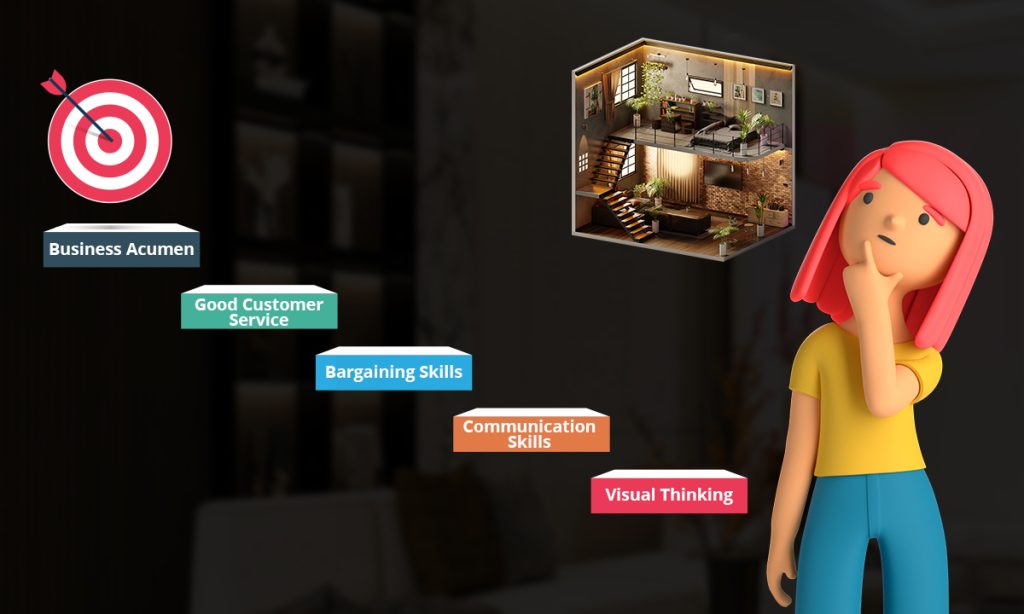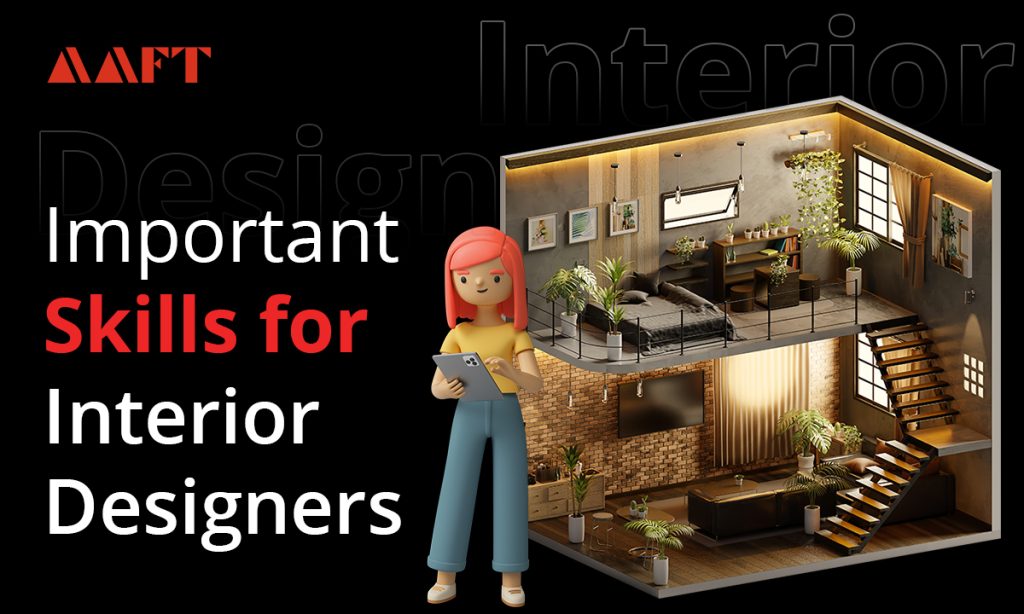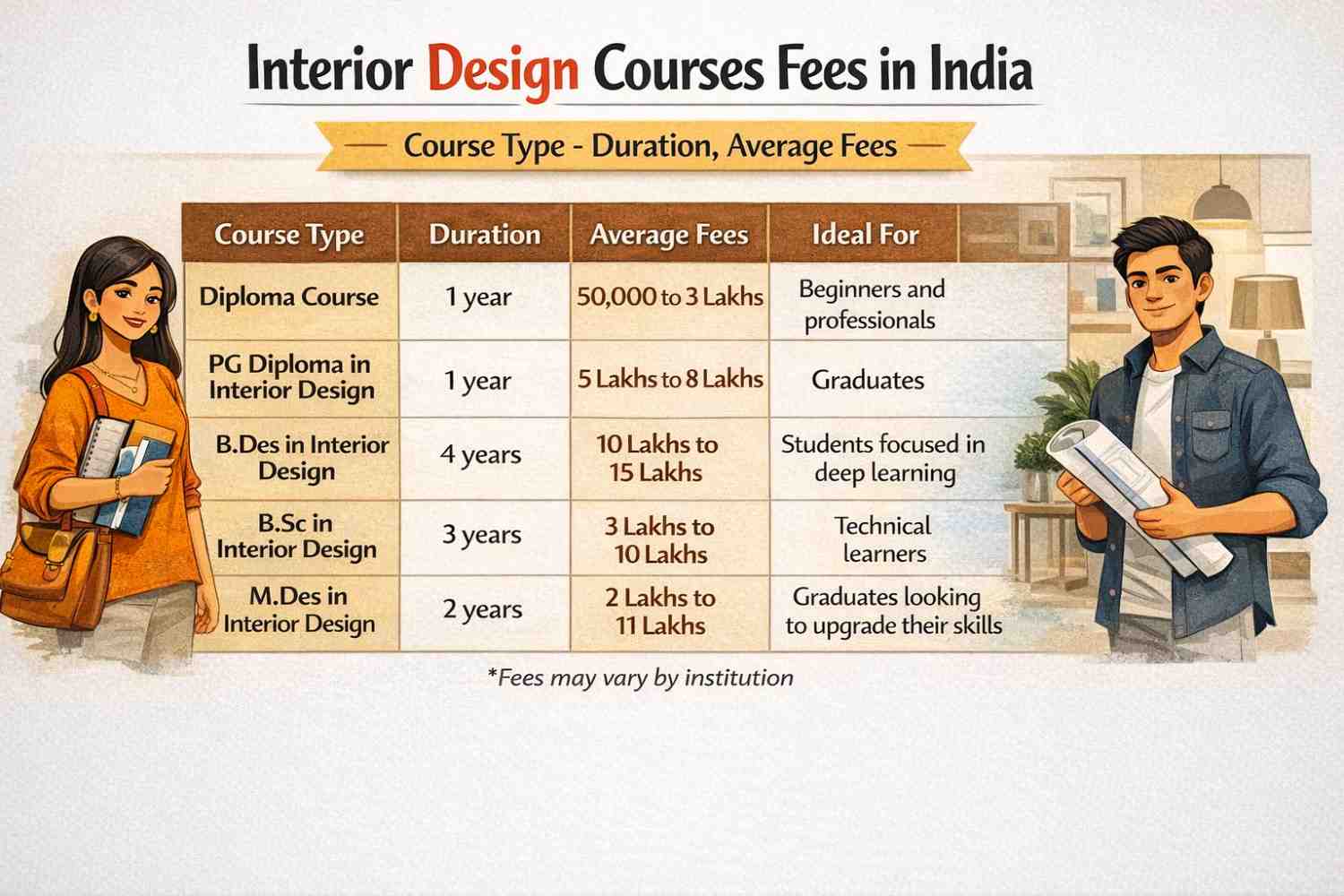Top 10 Most Important Skills for Interior Designers
Interior designers are vital players in the dynamic field of design, helping to shape the environments we live in. They carefully create spaces that skillfully combine aesthetics and utility; they are experienced architects, not merely decorators. Becoming successful in this fast-paced field requires more than just knowing how to arrange furniture and choose color schemes.
A thorough examination of the vital abilities that enable interior designers to succeed in their field is provided in “The Top 10 Most Important Skills for Interior Designers.”
This blog offers invaluable and useful guidance on everything from the basics of spatial awareness and design principles to the craft of effective communication and project management. Regardless of your level of experience, this collection will be a great tool that allows you to hone your talents and keep up with the ever-changing interior design industry.
What is interior design?
Interior design is a creative art form that combines aesthetics and practicality to create surroundings that are cozy and harmonious. The skill of designing both aesthetically beautiful and useful interior spaces is known as interior design.
What are the different skills that interior designers need?
Skills including creativity, space planning, color theory, material understanding, problem-solving, communication, technical proficiency, business acumen, cultural awareness, and customer service are all necessary for an interior designer career.
Interior Designer architects and designers create rooms/spaces that fulfill the needs of their users as well as their aesthetic appeal. Beyond only setting up furniture and selecting color schemes, one needs a broad range of abilities to succeed in this exciting and varied field.
The ability to create designs that satisfy clients’ requirements, financial constraints, and aesthetic standards while guaranteeing aesthetically pleasing, harmonious, and functional interiors is essential.
Interior Designer architects and designers create rooms/spaces that fulfill the needs of their users as well as their aesthetic appeal. Beyond only setting up furniture and selecting color schemes, one needs a broad range of abilities to succeed in this exciting and varied field.
Why are these skills important?
These abilities are crucial for success, regardless of whether you are an experienced expert trying to hone your trade or an ambitious designer hoping to break into the industry. Let’s take a closer look at each of these abilities and see why interior designers need them.
What Are the Top 10 Skills for Interior Design?

1. Visual thinking and creativity:
Interior designers are artists for spaces. They need to think of creative concepts and visualize how various elements such as furnishings, colors, and decorations will work together. They may create spaces that are functional as well as aesthetically pleasing in this way.
2. Communication Skills:
It’s important for interior designers to interact with people and share their concepts. In addition to listening to others, they must communicate their goals to clients, builders, and other stakeholders. This facilitates understanding and consensus over the ideal design.
3. Problem-Solving Techniques:
Unexpected events do not always go as expected. Proficiency in problem-solving and innovative problem-solving techniques are essential for an interior designer career. They must also figure out how to create in a space or on a budget that is constrained.
4. Technical Skills:
To illustrate their concepts, interior designers utilize specialized computer Interior designer software and sketching tools. For others to be able to see and comprehend their designs, they must possess strong sketching and computing skills.
5. Schedule better
The ability to schedule and stick to a budget is a must for interior designers. They must make a schedule for how much money to spend and when tasks should be completed. Being punctual and within your budget are crucial.
6. Bargaining Skills
To reach amicable agreements with customers, suppliers, and contractors, interior designers must possess strong bargaining abilities. Better materials, lower costs, and more seamless project execution are all possible outcomes of successful bargaining. It also entails resolving disputes and making sure the client’s goals and the project’s viability coincide.
7. Time Management Skills
To effectively manage several projects at once, interior designers need to be proficient in time management. They make sure that projects move along without incident and are finished on time, within budget, and by prioritizing work and setting reasonable deadlines.
8. Organizational Skills
Designers must possess exceptional organizational skills to handle the multitude of project details. To make sure that every component blends together perfectly in the finished design, they must maintain exacting records of materials, costs, and deadlines.
9. Good Customer Service
Abilities are essential to comprehending clients’ needs and designing environments they love. Building trust and satisfaction requires designers to pay close attention when they listen, appropriately interpret preferences, and keep lines of communication open.
10. Business Acumen
The ability to handle the commercial side of their work is an essential skill for interior designers. Interior designers frequently run their businesses or operate as self-employed contractors. Understanding financial concepts like resource allocation, business planning, competitive pricing, and efficient service marketing are all requirements for designers. They also have to deal with project budgets, customer contracts, and fee negotiations with contractors and suppliers.
Conclusion
To sum up, the ten talents mentioned above are unquestionably necessary for interior designers who want to succeed in their jobs. These abilities provide them with the basis to create creative and useful designs that satisfy the various requirements and tastes of their clientele. By developing these skills, interior designers not only become more professional but also guarantee that the environments they create are both aesthetically beautiful and useful, which promotes customer loyalty and pleasure.
With the Interior Design degrees and diplomas that AAFT offers, you can become an expert in these areas. Your inner interior designer will be empowered to turn ordinary places into amazing havens that appeal to your future clientele, allowing you to leave your mark in the ever-evolving interior design industry.
What are the most important interior designer skills?
Creativity is the most crucial ability for interior designers. a strong sense of creativity for conceptualization; communication; ability to effectively communicate design concepts to suppliers, contractors, and clients; solving difficulties to handle obstacles during projects; capacity to come up with original solutions; Proficiency with design tools and software, such as Auto CAD and 3D modeling; Timeline and budget management; ability to negotiate for a good price, etc.
How to develop interior designer skills?
Interior Designer Education: To obtain the fundamental information and abilities of interior design, and participate in courses or degree programs in the field.
Self-study: To broaden your knowledge and keep current with industry Interior Designer trends, read books, articles, and design journals.
Workshops and Seminars: To learn from seasoned designers and obtain insight into the field, attend workshops, seminars, and conferences.
Internships & Assistant Positions: Work as an experienced interior designer’s assistant or intern to obtain real-world experience.
Networking: To establish a professional network, get in touch with industry experts, join associations for designers, and take part in events centered around designers.
What is the salary for an interior designer?
The pay for interior designers varies significantly depending on experience, region, and area of specialization. Experienced designers in urban regions can make $75,000 or more a year, while entry-level designers may make between $35,000 and $50,000. Specialized or well-known designers with a solid portfolio may fetch even greater compensation. Whether a designer works for a design firm or individually determines their pay as well.











